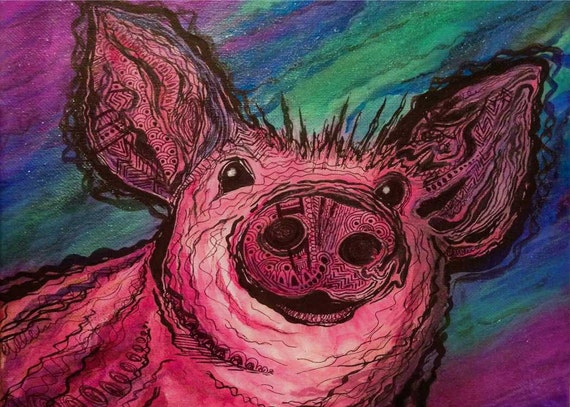- Welcome to Cook'd and Bomb'd.
-
 Comedy That's Changed Your...
by neveragain
Comedy That's Changed Your...
by neveragain
[Today at 12:16:53 PM] -
 Football Thread 23-24: Part...
by Kankurette
Football Thread 23-24: Part...
by Kankurette
[Today at 12:16:43 PM] -
 GC Rowling's Icky Bog Adventures,...
by DreadedScotsman
GC Rowling's Icky Bog Adventures,...
by DreadedScotsman
[Today at 12:16:15 PM] -
 I have never listened to the...
by Cleveland Steamer
I have never listened to the...
by Cleveland Steamer
[Today at 12:16:02 PM] -
 The Last CaB post that made...
by Kankurette
The Last CaB post that made...
by Kankurette
[Today at 12:15:39 PM] -
 Trans Mania: Graham Linehan...
by phantom_power
Trans Mania: Graham Linehan...
by phantom_power
[Today at 12:15:09 PM] -
 Israel-Gaza Conflict III -...
by BlodwynPig
Israel-Gaza Conflict III -...
by BlodwynPig
[Today at 12:03:42 PM] -
 Richie Sunak - The Decline...
by FredNurke
Richie Sunak - The Decline...
by FredNurke
[Today at 11:59:41 AM] -
 Gig 'Whores : A New Hope
by Kankurette
Gig 'Whores : A New Hope
by Kankurette
[Today at 11:58:15 AM] -
 Threelon Musk: pl3ase lik3...
by buttgammon
Threelon Musk: pl3ase lik3...
by buttgammon
[Today at 11:57:18 AM]
Members
 Total Members: 17,819
Total Members: 17,819 Latest: Jeth
Latest: Jeth
Stats
 Total Posts: 5,576,718
Total Posts: 5,576,718 Total Topics: 106,650
Total Topics: 106,650 Online Today: 869
Online Today: 869 Online Ever: 3,311
Online Ever: 3,311- (July 08, 2021, 03:14:41 AM)
Users Online
 Users: 110
Users: 110 Guests: 603
Guests: 603 Total: 713
Total: 713 ajsmith2
ajsmith2 Eltho Jo
Eltho Jo daf
daf Oh, Nobody
Oh, Nobody Senior Baiano
Senior Baiano Kankurette
Kankurette DelurkedToHelp
DelurkedToHelp brebsy
brebsy Auntie Beryl
Auntie Beryl cptpunk
cptpunk Percy Dovetonsils
Percy Dovetonsils Jerrykeshton
Jerrykeshton Zetetic
Zetetic Jerzy Bondov
Jerzy Bondov studpuppet
studpuppet JesusAndYourBush
JesusAndYourBush pancreas
pancreas Registering to lurk
Registering to lurk phes
phes lankyguy95
lankyguy95 Sad Ken
Sad Ken JaDanketies
JaDanketies lebowskibukowski
lebowskibukowski Cleveland Steamer
Cleveland Steamer checkoutgirl
checkoutgirl Angst in my Pants
Angst in my Pants kngen
kngen DreadedScotsman
DreadedScotsman Lordofthefiles
Lordofthefiles The Always Red Society
The Always Red Society neveragain
neveragain Ruben Remus
Ruben Remus katzenjammer
katzenjammer Emotional Support Peacock
Emotional Support Peacock Better Midlands
Better Midlands Wezzo
Wezzo Jumblegraws
Jumblegraws phantom_power
phantom_power mr. logic
mr. logic Peter St. John
Peter St. John Underturd
Underturd oggyraiding
oggyraiding cakeinmilk
cakeinmilk Vodkafone
Vodkafone thevoola
thevoola bollocks
bollocks Minneapolis Fuckhat
Minneapolis Fuckhat Chudraa
Chudraa Utter Shit
Utter Shit SteveDave
SteveDave LurkMcGee
LurkMcGee mattyc
mattyc Xander
Xander Norton Canes
Norton Canes prelektric
prelektric jonbob
jonbob The Dog
The Dog Asclepius
Asclepius Blumf
Blumf perplexingprocrastinator
perplexingprocrastinator Steven88
Steven88 Schnapple
Schnapple dead-ced-dead
dead-ced-dead bluestar
bluestar gib
gib brownjam
brownjam Waking Life
Waking Life Egyptian Feast
Egyptian Feast ramsobot
ramsobot McDead
McDead Brundle-Fly
Brundle-Fly andyneal2005
andyneal2005 Paul Calf
Paul Calf Alberon
Alberon burst_arm
burst_arm BlodwynPig
BlodwynPig notcherhorowitz
notcherhorowitz Loukides
Loukides BritishHobo
BritishHobo Stone Cold Steve Austin
Stone Cold Steve Austin Claude the Racecar Driving Rockstar Super Sleuth
Claude the Racecar Driving Rockstar Super Sleuth Petey Pate
Petey Pate EOLAN
EOLANHas a book ever changed you?
Started by Thomas, July 26, 2021, 07:58:28 PM
Previous topic - Next topic
User actions

